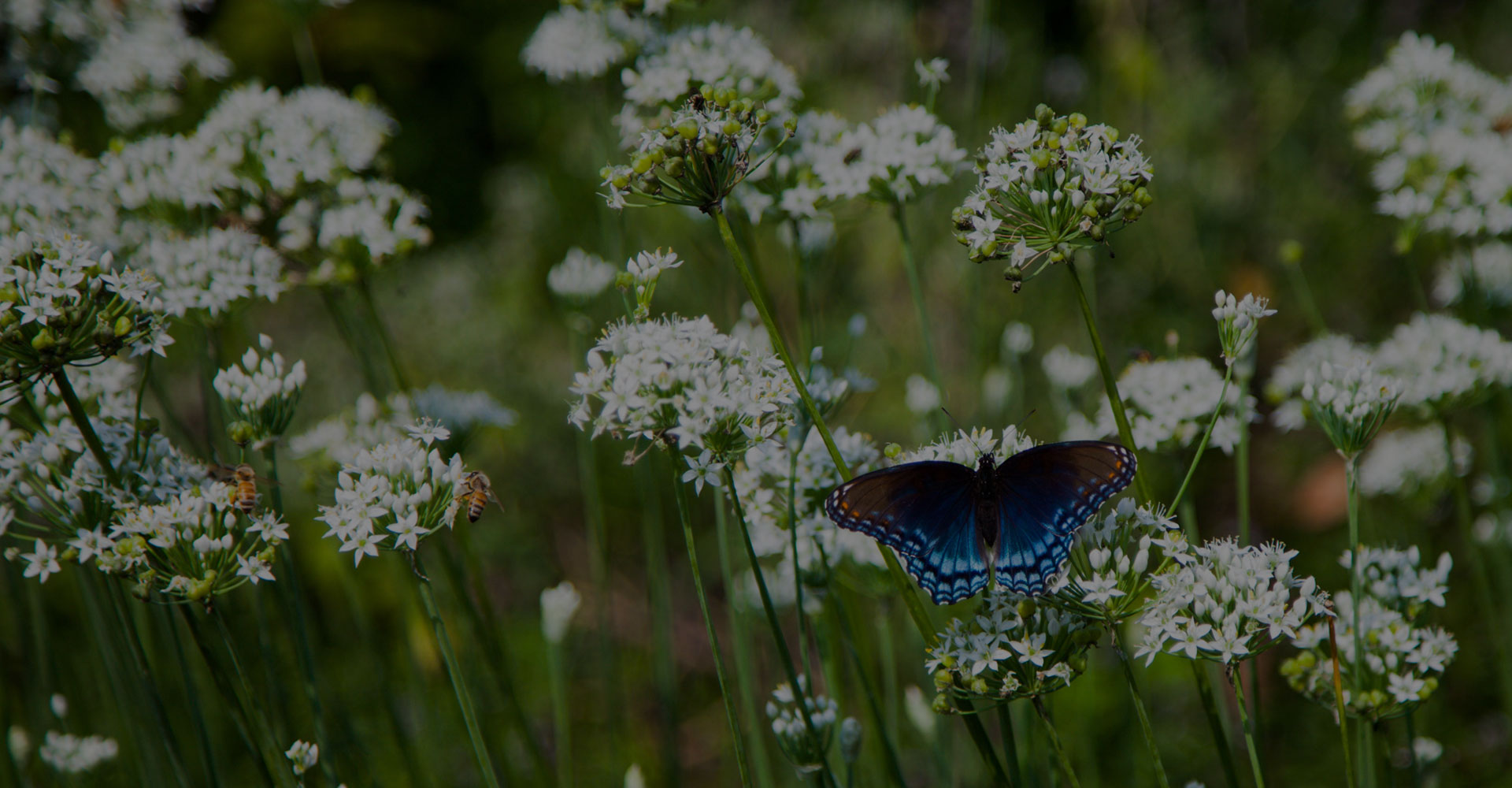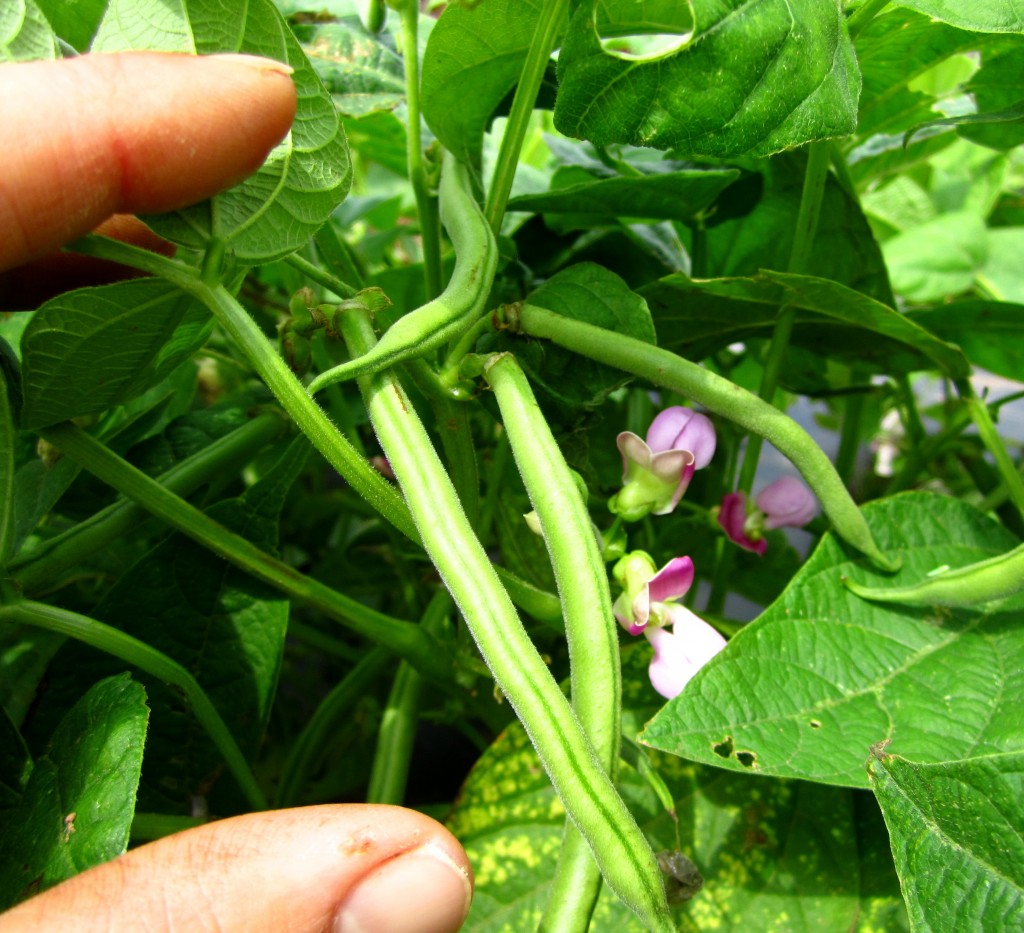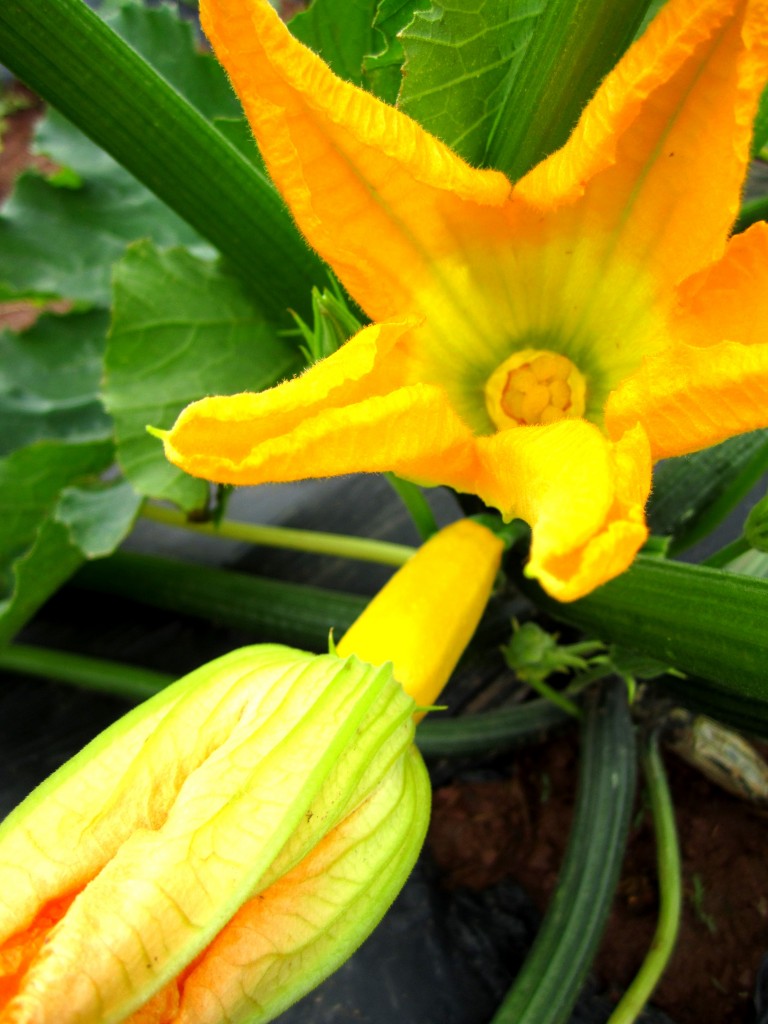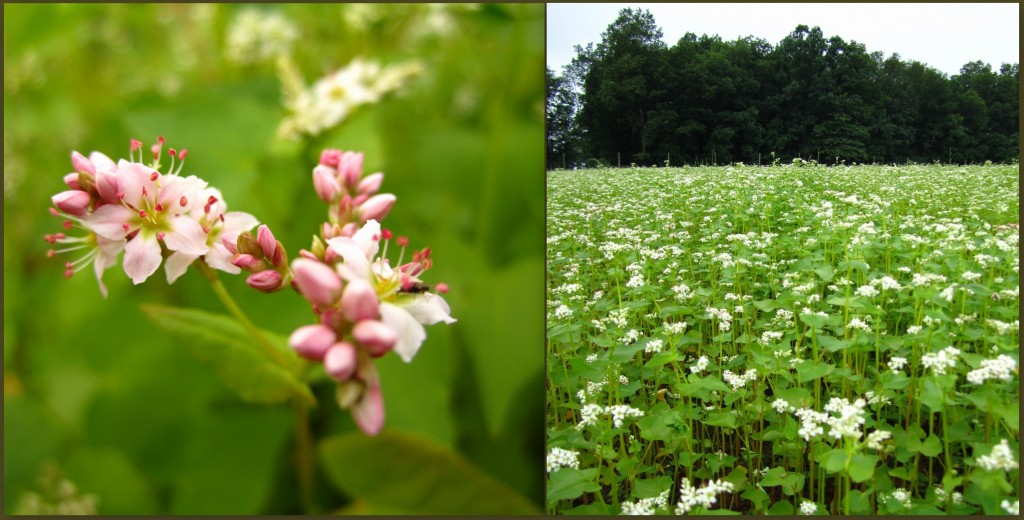14 Jun Downpours, high heat, and hail. Is spring over yet?!
Last week was a first here at Blooming Glen Farm. The soaring heat plummeted, the sky darkened and 3/4 inch hail fell on our fields. After racing around closing greenhouses to protect them from the wind, we ran for cover, amazed as the grass became covered in the white marbles. After our intitial shock wore off, we anxiously assesed the damage. The swiss chard looks a bit holier then usual, as does some of the head lettuce, but for the most part everything looks like it will recover, or outgrow the damage.
The spring crops have had a tough go at it. First they had to endure a long cold wet spring, many of them going into unfavorable conditions and muddy ground. Then as soon as the rain stopped, the temperature soared into the upper 90’s and those greens that so love the cool weather either sagged from the soggy conditions, like the arugula and radishes, or quickly bolted, sending up flower tops. Rows of bok choy, tatsoi, and chinese cabbage have yellow flowers sprouting from their centers, rendering them bitter and unpickable.
After a wonderful flush of sweet deliciousness, the strawberries have gone as quickly as they came, but that seems to be the norm for the fragile fruit. Now we enjoy another week of the candy sweet sugar snap peas, and look forward to tasty string beans.
The summer crops have enjoyed the burst of heat, and summer squash makes its first appearance in the harvest this week.
Now the focus on the farm switches to crop maintenance jobs like weeding. Our crew of 10 moves around the farm tackling hot spots and clearing crops of weeds with just our hands as tools. CSA volunteers have helped us get a jump on things as well. Thank you! Every bit helps!
After a spring crop is harvested and the field is empty, ideally it is planted into a cover crop. One example is buckwheat, a short season annual that’s useful for weed suppression. It is also a scavenger of phosphorus and calcium and mineralizes rock phosphate, making these nutrients available for later crops. Residue from the succulent buckwheat plants decomposes quickly. Parasitic wasps, ladybugs, and hoverflies are beneficial insects that are attracted to buckwheat.
Photos and text by Tricia Borneman, Blooming Glen farmer and co-owner.








Sorry, the comment form is closed at this time.